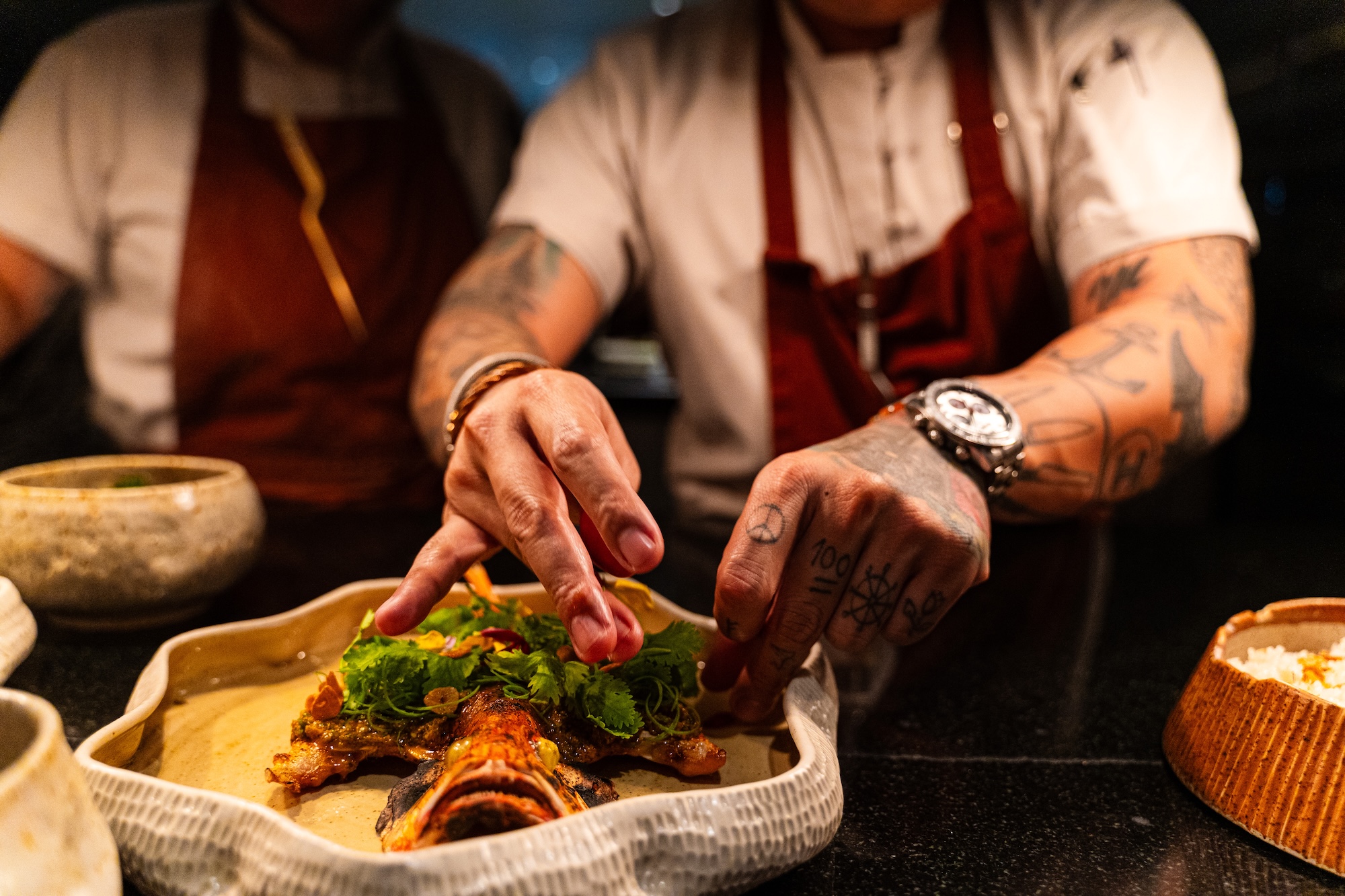From the Spanish word that means pork rind, chicharon has become a (dangerously) popular dish all over the world. It has reached many Latin American countries such as Cuba, Brazil, Mexico, Venezuela, and Argentina. In Chile, chicharon is often accompanied with bread while it’s mashed and stuffed in banana plantains in Puerto Rico.
Locally, there’s chicharon ampaw—served to the lower class during the Spanish colonial era—that’s either eaten while drinking liquor or used as a garnish in palabok. Often salted and deep-fried, chicharon has undergone several changes. There’s now beef, fish, chicken, and even vegetarian versions. Vegetarian chicharon (such as those made from seaweed and mushrooms) was first produced by Mexican snack company Barcle in the 1980s and this culinary innovation has since spurred many variations including chocolate-dipped chicharon.
So although originally discarded, can “scrap” meat open possibilities to bigger markets?
Food for the mass
Mady Dela Cruz used to work as a repacker of vinegar at her husband’s aunt’s factory. As soon as she realized that her income wasn’t enough to sustain her family, she and her husband decided to set up their own business. From the P50,000 she earned selling macaroni crackers, she expanded into selling kropeck, balut, and their specialty and now bestseller, chicharong kalabaw (carabao chicharon) under the brand Benedict’s Special Chicharon and Balut’s.
https://www.instagram.com/p/B7GqngoBNlh/
For their chichakalabaw, they use 70 whole carabao skin each day. According to Dela Cruz, it’s “softer” than normal chicharon as it only utilizes carabao skin. When fried, it puffs up and is basically more air than skin.
From 10 repackers, Dela Cruz has now grown the business to four small factories and even hiring PWDs and senior citizens as part of their advocacy. She chalks this up to her belief that it’s better to make your own products, especially if they’re banking on food for the masses, than to import.
Her experience has taught her that when something doesn’t work, as what happened when she tried chicharong baboy, you must find another venture. Her first and second attempts at finding profit didn’t work but eventually, she was able to zero in on the right market and naturally thrive.










































